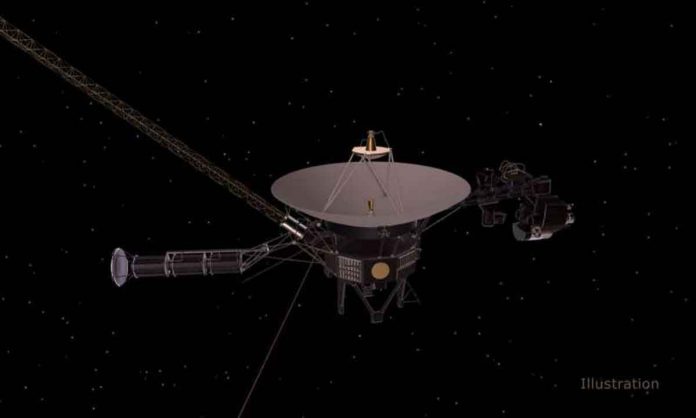Engineers have resolved a problem that was affecting data from NASA’s Voyager 1 spacecraft. Despite operating normally, the probe’s attitude articulation and control system (AACS), which keeps Voyager 1’s antenna pointed at Earth, began sending garbled data about its health and activities to mission controllers earlier this year. The rest of the probe appeared to be in good condition as it continued to collect and transmit scientific data.
The team has since discovered the source of the jumbled data: The AACS began sending telemetry data through an onboard computer known to have failed years ago, and the computer corrupted the data.
When Suzanne Dodd, Voyager’s project manager, suspected this was the problem, she chose a low-risk solution: commanding the AACS to resume sending data to the correct computer.
Engineers aren’t sure why the AACS began routing telemetry data to the wrong computer, but it was most likely caused by a faulty command generated by another onboard computer. If that’s the case, it means there’s a problem somewhere else on the spacecraft. The team will continue to look for the underlying problem, but they do not believe it poses a threat to Voyager 1’s long-term health.
“We’re relieved to have the telemetry back,” Dodd said. “We’ll perform a full memory readout on the AACS and examine everything it’s done. This will assist us in attempting to identify the problem that caused the telemetry issue in the first place. So, we’re cautiously optimistic, but there’s still work to be done.”
For 45 years, Voyager 1 and Voyager 2 have been exploring our solar system. Both probes are now in interstellar space, which is the region beyond the heliopause, or the Sun’s bubble of energetic particles and magnetic fields.

